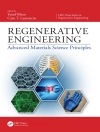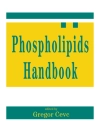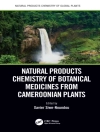The book contains the refereed contributions from the 45th Annual Meeting of the International Society on Oxygen Transport to Tissue (ISOTT) 2017. This volume covers cross-disciplinary work on a broad range of topics related to the dynamics of oxygen transport: microcirculation and vascular medicine; O2 deficiency and its impact on molecular processes in cells and tissues; cellular metabolism and mitochondrial function; multimodal functional imaging; mathematical modeling; the clinical relevance of oxygen supply as well as therapeutic interventions (e.g. in oncology or critical care medicine). The annual meetings of ISOTT bring together scientists from diverse fields (medicine, physiology, mathematics, biology, chemistry, physics, engineering, etc.) in a unique international forum. The book includes sections on brain oxygenation and function, NIRS oxygenation measurements, tumor oxygenation, cell metabolism, tissue oxygenation and treatment, methodical aspectsof O2 measurements and physicochemical aspects of oxygen diffusion.
Chapters 3, 24, 49 and 51 of this book are open access under a CC BY 4.0 license.
Innehållsförteckning
Cerebral Angioplasticity: The Anatomical Contribution to Ensuring Appropriate Oxygen Transport to Brain.- Changes in Cytochrome-C-Oxidase Account for Changes in Attenuation of Near-Infrared Light in the Healthy Infant Brain.- Hyperspectral Imaging of the Hemodynamic and Metabolic States of the Exposed Cortex: Investigating a Commercial Snapshot Solution.- Impact of Aging on Metabolic Changes in the Ketotic Rat Brain: Glucose, Oxidative and 4-HNE Metabolism.- Increases in Microvascular Perfusion and Tissue Oxygenation via Vasodilatation after Anodal Transcranial Direct Current Stimulation in the Healthy and Traumatized Mouse Brain.- Fluctuations of Nutrition-associated Markers After Decompressive Hemicraniectomy in Middle Cerebral Artery Occlusion Patients.- Resuscitation Fluid with Drag Reducing Polymer Enhances Cerebral Microcirculation and Tissue Oxygenation after Traumatic Brain Injury Complicated by Hemorrhagic Shock.- Comparison of Quantitative and Qualitative Oxygen Extraction Fraction (OEF) in Acute Stroke Patients with Large Vessel Occlusion.- Relation Between Asymmetry of Prefrontal Activity and Autonomic Nervous System in Post-stroke Patients with a Disorder of Consciousness.- Cerebral Hemodynamics after Transcranial Direct Current Stimulation (t DCS) in Patients with Consequences of Traumatic Brain Injury.- Differences in Tissue Oxygenation, Perfusion and Optical Properties in Brain Areas Affected by Stroke: A Time-resolved NIRS Study.- Changes of Doublecortin-immunoreactive Cells from the Acute Phase to Chronic Phase after Transient Global Brain Ischemia in Rat Cingulate Cortex.- Post-resuscitation Arterial Blood Pressure on Survival and Change of Capillary Density following Cardiac Arrest and Resuscitation in Rats.- Monitoring of Brain Oxygenation During and After Cardiopulmonary Resuscitation: A Prospective Porcine Study.- Effects of Aerobic Cycling Training on O2 Dynamics in Several Leg Muscles in Early Post-Myocardial Infarction.- Evaluation of Functional Hyperemia using NIRTRS without the Influence of Fat Layer Thickness.- Changes in Spinal Muscle Oxygenation and Perfusion during the Biering-Sørensen Test: Preliminary Results of a Study Employing NIRS-based Muscle Oximetry.- Near Infrared Spectroscopy (NIRS) Observation of Vastus Lateralis (muscle) and Prefrontal Cortex (brain) Tissue Oxygenation during Synchronised Swimming Routines in Elite Athletes.- Impact of Changes in Systemic Physiology on f NIRS/NIRS Signals: Analysis Based on Oblique Subspace Projections Decomposition.- Changes in Cerebral Oxyhaemoglobin Levels During and After a Single 20-minute Bout of Moderate-intensity Cycling.- Changes in the Prefrontal Cortex Oxygenation Levels during Cycling in the Supine and Upright Positions.- Trail Making Test Induces Prefrontal Cortex Activation as Revealed by a cw Wearable-Wireless f NIRS/DOT Imager.- Prediction of MMSEScore Using Time-resolved Near-infrared Spectroscopy.- Broadband NIRS Cerebral Cytochrome-C-Oxidase Response to Anoxia Before and After Hypoxic-Ischaemic Injury in Piglets.- Synchronized Oscillations of Arterial Oxygen Saturation, Cerebral Tissue Oxygenation and Heart Rate in Preterm Neonates: Investigation of Long-Term Measurements with Multiple Einstein’s Cross Wavelet Analysis.- Multispectral Near-Infrared Optical Tomography for Cancer Hypoxia Study in Mice.- Hypoxia-/HIF-1α-Driven Factors of the Tumor Microenvironment Impeding Antitumor Immune Responses and Promoting Malignant Progression.- Differential Expression of PGC1α in Intratumor Redox Subpopulations of Breast Cancer.- Accounting for Two Forms of Hypoxia for Predicting Tumour Control Probability in Radiotherapy: An In Silico Study.- Impact of Temporal Heterogeneity of Acute Hypoxia on the Radiation Response of Experimental Tumors.- Mathematical Description of Changes in Tumour Oxygenation from Repeated Functional Imaging.- An In Vitro Model for Determining Tumor Cell Migration Under Metabolic Gradients.- Expression of Micro RNAs in Fibroblasts and Macrophages Is Regulated by Hypoxia-Induced Extracellular Acidosis.- Influence of Extracellular Acidosis on Matrix Protein Homeostasis in Tumour Cells and Fibroblasts.- Novel Redox Active Tyrosine Mutations Enhance the Regeneration of Functional Oxyhemoglobin from Methemoglobin: Implications for Design of Blood Substitutes.- Septic-induced micro RNA Expression Modulations are linked to Angiogenesis, Vasomotion, and Hypoxia-induced Processes.- Guidance to Transfer ‘Bench-ready’ Medical Technology into Usual Clinical Practice – Case Study: Sensors and Spectrometer used in EPR Oximetry.- Regulation of Oxygen Tension in the Mammalian Retina During Systemic Hyperoxia is Species Dependent .- Intravital Observation of Microvascular Remodeling during Chronic Exposure to Hypoxia in Mice.- Analysis of Aortic Remodeling and Stiffness in Patients with Obstructive Sleep Apnea Syndrome: Preliminary Results.- Does Vascular Endothelial Cell or Smooth Muscle affect the Decrease in Oxygen Consumption of Arteriolar Wall during Vasodilation.- Hyperbaric Oxygen Therapy in Necrotizing Soft Tissue Infections: A Retrospective Study.- Dynamic Exercise Elicits Dissociated Changes between Tissue Oxygenation and Cerebral Blood Flow in the Prefrontal Cortex: A Study using NIRS and PET.- Mucine-1 is Related to Cell-Mediated Immunoexpression and Blood Pressure in Pulmonary Artery in Pulmonary Arterial Hypertension (PAH): Preliminary Results.- The Mitochondrial Na+/Ca2+ Exchanger is Necessary but not Sufficient for Ca2+ Homeostasis and Viability.- Hemoglobin Dynamics in the Skeletal Muscle of Patients with Malignant Hematopoietic Disease.- Fatigue, Muscle Oxygen Consumption and Blood Flow to the Skeletal Muscle after Allogeneic Hematopoietic Stem Cell Transplantation.- Reliability of Wearable Two Channel CW-NIRS in Measurements of Brain Function.- Investigation of Confounding Factors in Measuring Tissue Saturation with NIRS Spatially Resolved Spectroscopy.- Discrimination of Complex Activation Patterns in Near Infrared Optical Tomography with Artificial Neural Networks.- ABro AD: A Machine Learning Based Approach to Detect Broadband NIRS Artefacts.- Absolute Values of Optical Properties (µa, µs’, µeff and DPF) of Human Head Yissue: Dependence on Head Region and Individual.- Long-term Changes in Optical Properties (µa, µs’, µeff and DPF) of Human Head Tissue during Functional Neuroimaging Experiments.- A Fibreless Multiwavelength NIRS System for Imaging Localised Changes in Cerebral Oxidised Cytochrome C Oxidase.- Use of a Turn Coil and Channel above a GMR-SV Device to Observe and Measure the Properties of Deoxidized Red Blood Cells Coupled to Magnetic Beads.- Long-term in vivo Oxygen Sensors for Peripheral Artery Disease Monitoring.- A New Method Based on Virtual Fluence Detectors and Software Toolbox for Handheld Spectral Optoacoustic Tomography.- Computerized Video-capillaroscopy Alteration Related to Diabetes Mellitus and its Complications.- Contrast Ratio Quantification during Visualization of Microvasculature.- In vitro Comparisons of Near-Infrared Spectroscopy Oximeters: Impact of Slow Changes in Scattering of Liquid Phantoms.- Liquid Blood Phantoms to Validate NIRS Oximeters: Yeast versus Nitrogen for Deoxygenation.- Visualization of Methemoglobin Distribution in Tissues: Phantom Validation.- Polyunsaturated Fatty Acids induce ROS Synthesis in Microvascular Endothelial Cells.- Effect of Chain Unsaturation and Temperature on Oxygen Diffusion through Lipid Membranes from Simulations.- Reduced Oxygen Permeability upon Protein Incorporation within Phospholipid Bilayers.- Sanal-Cell Cycle and Primo Vascular System: Regeneration via Sanals.- Role of CXCR4 antagonist in Megakaryocyte Reinstatement with Increased Sinusoidal Vessel Density.- Solid-phase Extraction with Packed-Fiber is a Biological Sample Preparation Tool for Neuro-active Molecule Detection.- Salivary Alpha-amylase and Behavior Reaction in Acute Stress and the Impact of Tridimensional Personality.
Om författaren
Oliver Thews is Professor of Physiology at the Martin Luther University Halle-Wittenberg, Germany. He studied medicine at the University of Mainz and worked there at the Institute of Medical Statistics and Documentation as well as at the Institute of Physiology. After a temporary professorship of physiology at the University of Würzburg he moved to the Julius-Bernstein-Institute of Physiology at the University of Halle. His major research field is the role of metabolic parameters such as hypoxia and acidosis on the biological behavior of tumor cells. He is interested in the therapeutic relevance of microenvironmental tissue parameters and the mechanisms by which these parameters act. In addition, his research focusses on functional in vivo imaging using Positron Emission Tomography. He has served as the Secretary of ISOTT since 1999.
Joseph C. La Manna is the Jeanette M. and Joseph S. Silber Professor of Brain Sciences at the Case Western Reserve University Schoolof Medicine, Department of Physiology & Biophysics. He is the former chair of the Department of Anatomy at CWRU. He is a Past President of The Federation of American Societies for Experimental Biology (FASEB), and Secretary of the International Society for Cerebral Blood Blow and Metabolism. He has published over 250 papers on the topic of oxygen and energy metabolism, especially in the field of brain blood flow and metabolism. He has been a member of the International Society for Oxygen Transport to Tissue since 1976, serving as President of the ISOTT in 2009. In 2016 he became the editor in Chief of the ISOTT proceedings.
David Harrison is CEO of Microvascular Measurements and acts as honorary Senior Scientific Consultant for Oroboros Instruments (Innsbruck, Austria). In this capacity he has recently been responsible for the development of lightguide spectrophotometry for the continuous measurement of cytochrome redox state in mitochondria during high resolution respirometry. Prior to this, he was Head of the Durham Unit of the Regional Medical Physics Department and Honorary Senior Lecturer in Medical Physics, Institute of Cellular Medicine, Newcastle University, UK until retiring from the NHS in 2009. He is author or co-author of over 130 publications, mainly in the field of blood flow and oxygen transport to tissue. He has been a member of ISOTT for over 30 years including being President in 1996. Since 2004 he has been Scientific Editor of the “Oxygen Transport to Tissue” volumes.












